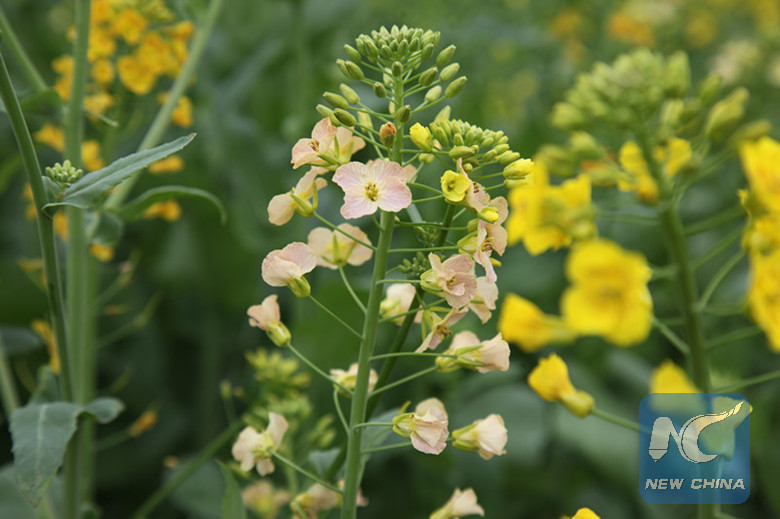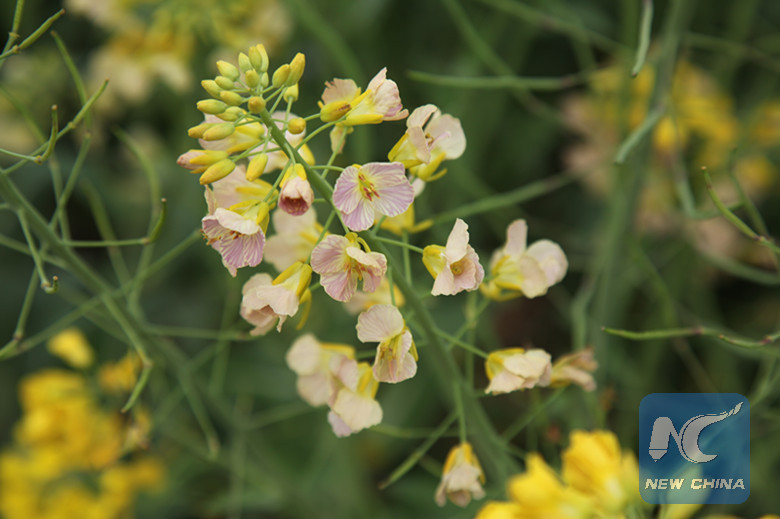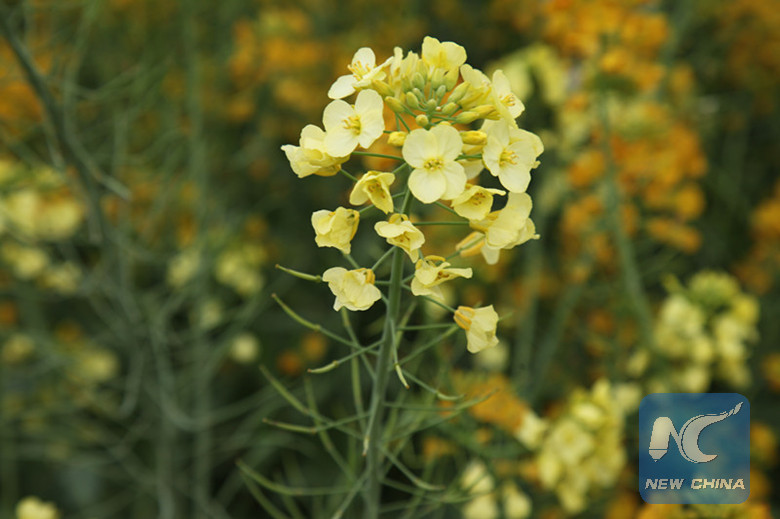
Cole flowers in Wuyuan county, east China's Jiangxi province. (Xinhua)
NANCHANG, March 19 (Xinhua) -- After four years of research, Jiangxi Agricultural University has developed cole flowers in 17 colors to help tourism in the province.
Now that spring is in the air, flower tours have attracted crowds of tourists to rural areas, especially in Jiangxi, which is famous for its cole flowers.

The sea of cole flowers is a signature of Jiangxi, bringing crowds of tourists to the county every year. (Xinhua)
"The sea of cole flowers is a signature of Jiangxi, but tourism has been long restricted by the limited colors of the flower," said Fu Donghui, who heads up the research.
Fu started working on cole flowers in 2002. In 2017, he cultivated four new colors, including purple and crimson, based on 13 other colors. Nine of the 17 colors his team have created are stable and for large scale planting, Fu said.
Fu has also helped prolong the flowering phase for 10 days.
"One day of extra flowering can bring in an extra 10 million yuan (1.6 million U.S. dollars) of revenue for Wuyuan," Fu said, referring to one of the county's most famous for cole flowers.
More than 6,500 hectares of cole flowers are in full bloom in Wuyuan, and so is tourism. Coupled with unique terraced fields and ancient buildings shrouded in mist, the county attracts countless visitors.

Spring is in the air, cole flowers are in full bloom in Wuyuan. (Xinhua)
More than 7,700 hectares of the flowers have been planted in the county helping to attract about 5 million visitors last year, who spent more than 3 billion yuan, according to the local tourism development commission.
Compared to regular cole flowers, the new types look better and contain more anthocyanin, a type of blue, violet, or red pigment, according to Fu.
But the flowers can only be grown once or twice a year, and it takes four to five years before a new color is ready for large-scale growth.
"Right now I am cultivating blue ones," Fu said.
In several counties in Jiangxi, white cole flowers are already being planted in pilot projects.
"We hope to create more amazing fields of color," Fu said.

